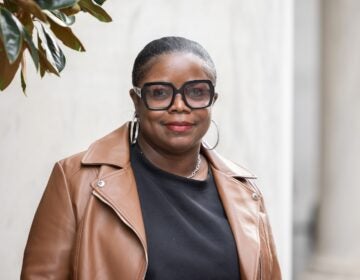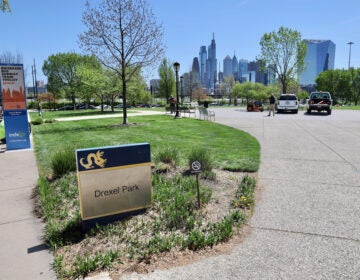Chestnut Hill College-based group offers veterans and their families counseling
The Soldiers Project, a volunteer organization that facilitates free emotional-wellness services for returning veterans, launched their Southeastern Pennsylvania chapter in 2010 out of Chestnut Hill College.
“My father is a disabled vet, so I felt that it was very important that veterans be recognized and cared for,” said Sister Nancy DeCesare, director of the college’s branch.
“I was a teenager during the Vietnam War and I clearly saw the lack of reception that the veterans received when they came home, so I really felt that we had to do something different for the men and women we sent off for this war and are now coming home,” continued DeCesare.
Clinicians at the Soldiers Project volunteer their time to give veterans the help they need. They work with loved ones, as well; providing free therapy to anybody with a personal connection to the war, including widows.
Joe O’Rourke, a retired Army veteran, began volunteering with the Soldier’s Project as a clinician in 2011. After retiring, he was looking for a way to remain connected the military.
“We’re unique, and that’s one of the things that attracted me to the Soldiers Project,” O’Rourke said. “Our clinicians see Iraqi and Afghanistan conflict veterans and their families for as long as it takes at no charge.”
Volunteer assistant and intake coordinator, Leslie Hoover, agreed that this is what distinguishes the organization from others. “About one-third of our clients are not the veterans themselves, but are mothers, spouses, partners…” she said.
The more clients that clinicians help, the more clinicians the organization needs. DeCesare expressed that the organization is in need of more volunteers – licensed family and marriage therapists, social workers, psychologists and psychiatrists who are willing to undergo special training with the organization.
Recent influx
DeCesare said that the organization is always gearing up for an influx of troops, especially in light of recent troop withdrawals.
When a call for help is received, the organization searches for and reaches out to clinicians throughout the state who can meet the client’s needs. The criteria for matches include proximity to clients and appropriate available services. It is then the responsibility of client to reach out for help. This approach has been the catalyst behind the organizations success rate.
“It’s not just the clinical piece,” DeCesare said. “We talk to veterans in outreach programs, veterans who come here to be part of our training. We all spend time talking to veterans on the phone telling them about the program and how we can help.”
Going forward
O’Rourke believes an important next step is to get the Army Reserves and National Guard members involved.
“Each Reserve and National Guard unit has personnel that have the duty of providing for health care and coordinating mental health care for their unit members. That’s who would be nice to reach out to, to try and get [veterans] as they come back,” he said.
“We need to have more clinicians,” O’Rourke said. “It’s hard times, and for a clinician to give up one or two slots where they could be making money, and to do it with no reimbursement other than the esoteric value of helping someone who put it on the line for our country, that’s a remarkable thing.”
Volunteers are essential to the program’s success. Without them working together, the organization would not exist, organizers explained.
“For me, I was born and raised in the military, I love the military and I understand the gravity of how important this is,” said Brittany Russell, a volunteer. “It’s been something I’ve been passionate about for a very long time, so it’s my ‘pay it forward’ for what the military has done for me and for my family.”
Nichole Baldino and Greg Paone are students at Temple University. This piece was produced for Temple’s Multimedia Urban Reporting Lab in collaboration with WHYY/NewsWorks.
WHYY is your source for fact-based, in-depth journalism and information. As a nonprofit organization, we rely on financial support from readers like you. Please give today.




